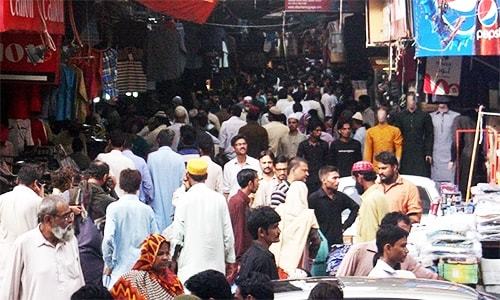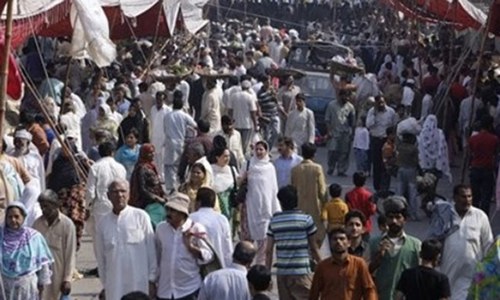ISLAMABAD: Even though it has been nearly a year since the government obtained approval from the Council of Common Interests (CCI) for a population census, it seems unlikely that the exercise will go ahead as planned in March this year.
Sources privy to the development told Dawn that Prime Minister Nawaz Sharif would take chief ministers into confidence over expected delays at the CCI meeting, scheduled to be held on Feb 29.
The decision to hold the census in March was taken when the CCI met last in March 2015. The last census was held in 1998 and the exercise has been pending since 2008 when it became due.
Sources said a new schedule was likely to be discussed at the CCI meeting and that it was difficult to say with certainty whether the delay would be just for a few months or more.
On Friday, Parliamentary Secretary for Finance and Statistics Rana Mohammad Afzal Khan told the National Assembly that the government couldn’t undertake the enumeration exercise as per schedule because of the unavailability of army personnel. Mr Khan told the house that if GHQ agreed, the government was ready for the 18-day nationwide exercise in April or May.
Logistical constraints, lack of political will may hold up enumeration exercise
However, background discussions with serving and former government officials associated with the census division revealed that the reason behind the delays may be more political than logistical.
The government has decided to divide the country into around 167,000 housing blocks. For each block, it requires one civilian and one solider for enumeration purposes, apart from their security detail. Reportedly, GHQ has indicated that a maximum of 100,000 soldiers would be available to perform these duties.
“Why does the government want to hold the population census in one go; why not in phases or province-wise, making it convenient for the army and other government departments,” asked a government official.
He also pointed out that a high-tech citizen database was already available in the shape of the National Database and Registration Authority (Nadra). Its services were only recently successfully utilised for the biometric verification of mobile phone SIMs and the government should use this facility for the census as well.
Another retired official who has worked with the Statistics Division agreed that given these modern tools, “we can have an accurate population census, but we need political will above all, which is unfortunately missing.”
Successive governments, the official explained, had been worried that a genuine census could upend the existing demographic ratio among the provinces. This was why all regimes, including the current one, had dithered on this front.
The official said that the last census in 1998 was plagued by the same traditional problems of exaggerated figures. Another issue was the presence of a large number of Afghan refugees and the presence of a massive unregistered population in Karachi, both of which needed to be addressed before the census was undertaken.
In 2011, the PML-N itself was one of the political parties that had opposed the results of the housing census, because it showed an unrealistic increase in numbers, particularly in Sindh, as compared to Punjab.
A PML-N lawmaker privy to the situation contended that population census was a very sensitive matter and required deft handling.
“We want it done in one go, because different issues can arise if it is divided into phases and political parties might object to the results,” he said.
Admitting that with the current law and order situation, it was unreasonable to expect the army to spare such a large number of personnel, he said the government would have to look for a reasonable alternative.
Asked if the government feared that a fresh census would show a decline in Punjab’s population, the lawmaker said, “If this was an issue, the government would not have announced a census before the next general elections in the first place.”
The number of national and provincial assembly seats from each territory is decided on the basis of population. In addition, the crucial distribution of resources under the National Finance Commission (NFC) Award is also done on the basis of the number of mouths to feed. In addition, delimitation of the constituencies and even the quota of jobs under the Federal Public Service Commission, depends on these numbers.
Chief Census Commissioner Asif Bajwa was not available for comment, despite repeated attempts.
Published in Dawn, February 22nd, 2016
















































